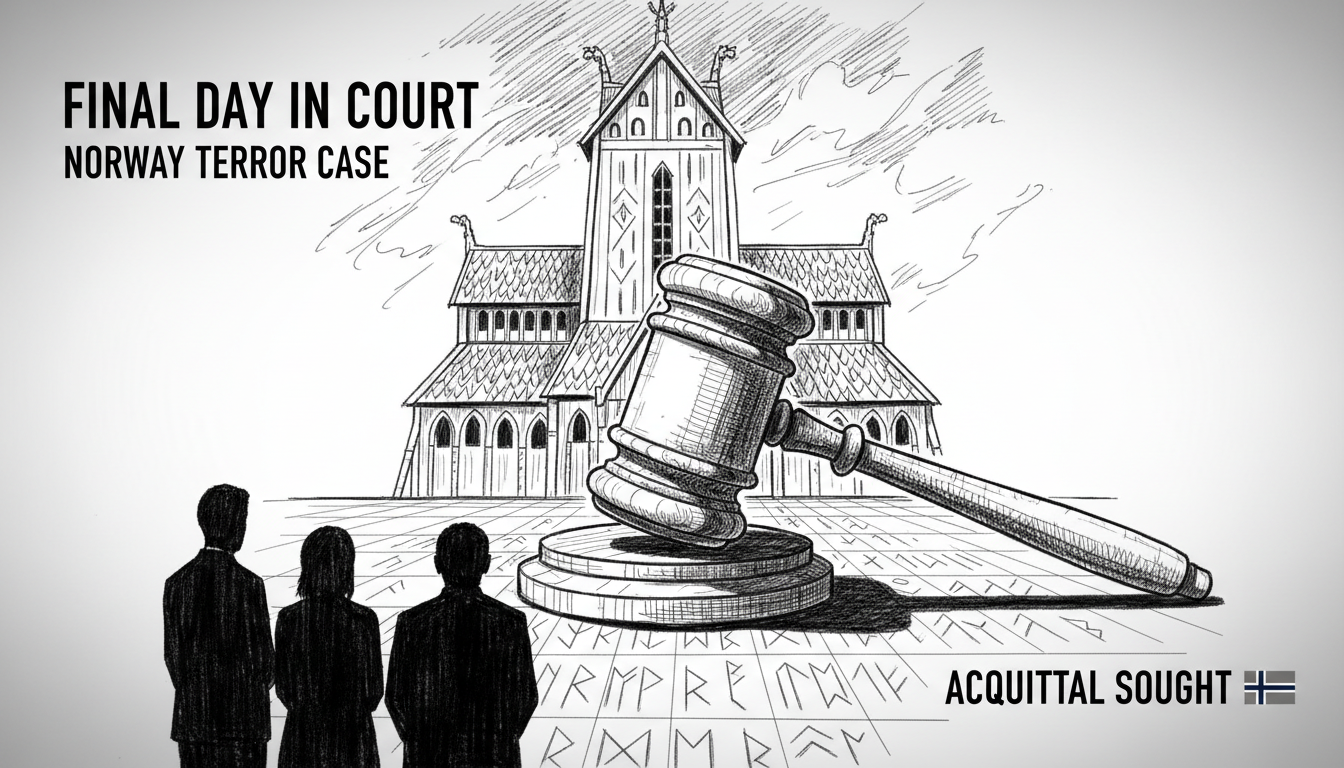Norwegian prosecutors demanded the maximum possible sentence for Arfan Bhatti on the final day of his terror trial. They requested 30 years of preventive detention with a minimum term of 20 years. Preventive detention represents Norway's most severe criminal penalty.
Bhatti's defense team argued for complete acquittal on all charges. Defense attorney John Christian Elden questioned whether the June 25 attack targeting Oslo's Pride festival constituted terrorism at all. He suggested the incident might represent a personal revenge mission by Zaniar Matapour rather than organized terror.
Bhatti faces charges of complicity in serious terrorism and attempting to plan additional attacks. He maintains his innocence on all counts. His legal team includes three attorneys from Elden Law Firm working collectively on his defense.
Elden told reporters, "We believe there is no basis for punishment whatsoever. Bhatti should be acquitted." The defense argued that even if convicted, preventive detention remains unnecessary given Bhatti's age and circumstances.
Norwegian preventive detention requires meeting strict criteria. The defendant must have committed serious crimes violating others' life, health, or freedom. The court must also find imminent danger of repeat offenses. This indefinite sentencing option extends beyond regular imprisonment when society needs extra protection.
Preventive detention sentences can be extended in five-year increments indefinitely. Courts review each extension based on continued risk assessment. All sentences include minimum terms that must be served before potential release.
The progression system moves inmates from high-security to low-security facilities. They transition through parole before potential full release. Preventive detention facilities house inmates separately from regular prison populations.
Prosecutors presented aggressive arguments during their two-day closing statement. They described Bhatti as someone who hates Norwegian values and claimed he has become more dangerous with age. The prosecution team highlighted Bhatti's extensive criminal history and labeled him a professional violence perpetrator.
Prosecutor Aud Kinsarvik Gravås stated, "No mitigating circumstances exist in this case. There has been no acknowledgment of guilt." She emphasized their assessment of very high recidivism risk.
This case represents one of Norway's most significant terror prosecutions in recent years. The outcome will signal how Norwegian courts handle complex terrorism cases involving indirect participation. Norway's legal system balances severe punishment for grave crimes with rehabilitation principles.
The trial has drawn international attention to Norway's counterterrorism approach. Legal observers note the case tests boundaries between free speech, religious expression, and criminal incitement. The verdict could influence future terrorism prosecutions across Scandinavia.
Norwegian courts typically deliver verdicts several weeks after trial conclusion. Both sides have indicated they will appeal unfavorable decisions. The case may ultimately reach Norway's Supreme Court given its constitutional implications.
What does preventive detention mean for Norway's justice system? This sentencing option reflects Norway's unique approach to handling dangerous repeat offenders while maintaining humanitarian principles. The Bhatti case demonstrates how Scandinavian countries confront modern security challenges within democratic frameworks.

